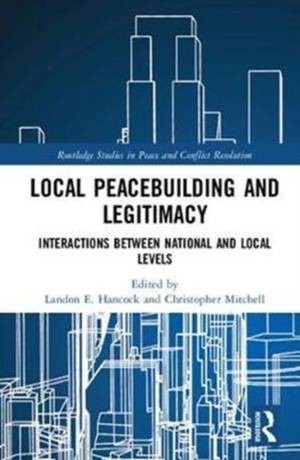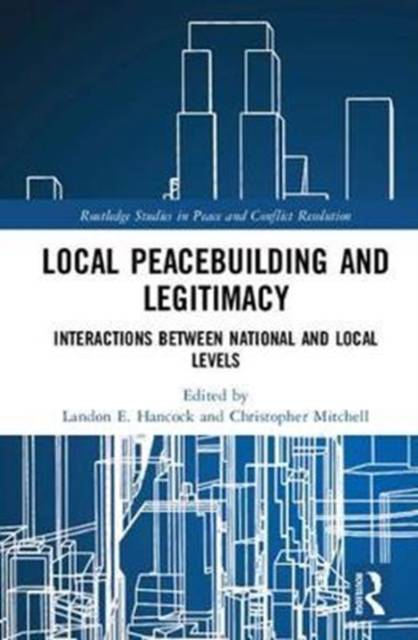
- Afhalen na 1 uur in een winkel met voorraad
- Gratis thuislevering in België vanaf € 30
- Ruim aanbod met 7 miljoen producten
- Afhalen na 1 uur in een winkel met voorraad
- Gratis thuislevering in België vanaf € 30
- Ruim aanbod met 7 miljoen producten
Local Peacebuilding and Legitimacy
Interactions Between National and Local Levels
Omschrijving
This volume searches for pragmatic answers to the problems that continue to beset peacebuilding efforts at all levels of society, with a singular focus on the role of legitimacy.
Many peacebuilding efforts are hampered by their inability to gain the support of those they are trying to help at the local level, or those at regional, national or international levels; whose support is necessary either for success at the local level or to translate local successes to wider arenas. There is no one agreed-upon reason for the difficulty in translating peacebuilding from one arena of action to another, but among those elements that have been studied, one that appears understudied or assumed to be unimportant, is the role of legitimacy. Many questions can be asked about legitimacy as a concept, and this volume addresses these questions through multiple case studies which examine legitimacy at local, regional, national and international levels, as well as looking at how legitimacy at one level either translates or fails to translate at other levels, in order to correlate the level of legitimacy with the success or failure of peacebuilding projects and programs
The value of this work lies both in the breadth of the cases and the singular focus on the role of legitimacy in peacebuilding. By focusing on this concept this volume represents an attempt to build beyond the critical peacebuilding approach of deconstructing the liberal peacebuilding paradigm to a search for pragmatic answers to the problems that continue to plague peacebuilding efforts at all levels of society.
This book will be of much interest to students of peacebuilding, conflict resolution, development studies, security studies and International Relations.
Specificaties
Betrokkenen
- Uitgeverij:
Inhoud
- Aantal bladzijden:
- 244
- Taal:
- Engels
- Reeks:
Eigenschappen
- Productcode (EAN):
- 9781138224148
- Verschijningsdatum:
- 20/02/2018
- Uitvoering:
- Hardcover
- Formaat:
- Genaaid
- Afmetingen:
- 156 mm x 233 mm
- Gewicht:
- 497 g

Alleen bij Standaard Boekhandel
Beoordelingen
We publiceren alleen reviews die voldoen aan de voorwaarden voor reviews. Bekijk onze voorwaarden voor reviews.










